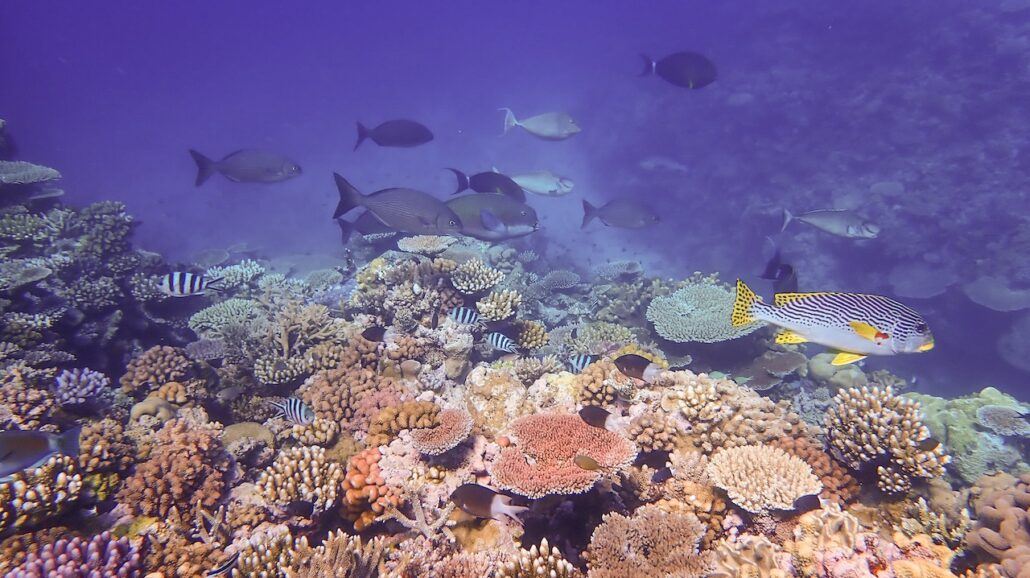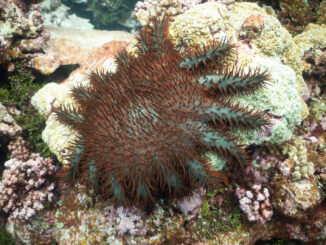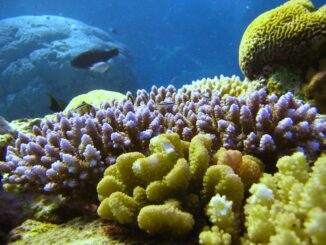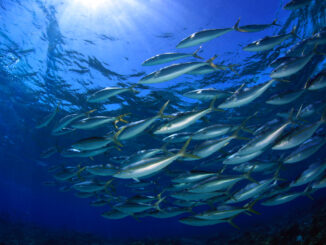
A new international study shows that the composition of species inhabiting the Great Barrier Reef has changed considerably from just a few decades ago.
The changes are being attributed mainly to climate change and other disturbances caused by humans.
“Great Barrier Reef fish communities differ substantially from those of the 1990s,” said researchers at the Australian Institute of Marine Science (AIMS), “and the pace of change has increased.”
AIMS findings are now published in the journal Nature Communications.
The study was spearheaded by scholars from the United Kingdom’s Lancaster University and Bangor University, in conjunction with AIMS.
Most scientists agree that the Great Barrier Reef is facing tremendous stress from climate change, but there is disagreement on what the future holds. Some research suggests certain coral communities are resilient to rising ocean temperatures. Others have shown that coral reefs recover from stress or damage far too slowly.
What’s not in dispute is that the Great Barrier Reef has been the scene of at least six mass coral bleaching events beginning in 1998.
A seventh mass coral bleaching event occurred last year. International scientists have now confirmed that 2024 was the hottest year on record since record-keeping began.
According to this latest study, something has caused a profound shift in the composition and abundance of certain species found in key parts of the Great Barrier Reef. The changes seen represent a fundamental shift in fish colonies, which can likely be attributed to global warming.
Studies from Japan have shown that fish species that once were known to primarily inhabit tropical regions have shifted their range further north.
This latest marine survey by AIMS and Lancaster University finds the same pattern in the Great Barrier Reef, only the effect is in opposite directions given that Australia is in the Southern Hemisphere. Fish species once found more commonly in the northern, more tropical regions of the GBR can now be found further south.
“In the northernmost parts of the Great Barrier Reef, which are closest to the equator, the number of different fish species, in particular species of omnivores, plankton feeders, and herbivores, have reduced,” the research team said in an overview of their findings. “In contrast, these tropic groups increased in the southernmost sectors of the Great Barrier Reef.”
They believe the shifts are related to changes in the types of coral dominating various parts of the reef. These changes in coral colonies are largely attributed to climate change and rising ocean temperatures.
They find changes in fish species diversity correlated most strongly with changes in coral composition.
The study’s authors note that changes in the composition of fish colonies at coral reefs are natural and occur mainly following some disturbance to the reef, like a storm. This latest research finds these shifts are now occurring faster and at greater frequencies.
They warn that further “flips” in marine species diversity and abundance are likely as the planet continues to heat up.
Late last year, researchers at the University of Queensland issued a warning that the ability of various species of coral to adapt to rising ocean temperatures “will likely be overwhelmed” as average global temperatures continue to rise inexorably.
U of Queensland Professor Peter Mumby and Dr. Liam Lachs of Newcastle University said they conducted modeling to determine the likely fate of coral reefs in different global warming scenarios.
They concluded that corals may be able to adapt should governments succeed in keeping worldwide average temperature increases at or below the targets set by the Paris Agreement.
If governments fail to do so, then additional warming of 3 to 5 degrees Celsius could overwhelm any ability of corals to naturally adapt to these higher ocean temperature conditions, the research pair predicts.
“The reality is that marine heatwaves are triggering mass coral bleaching mortality events across the world’s shallow tropical reefs, and the increasing frequency and intensity of these events are ramping up under climate change,” Mumby wrote.
Park Info
Park:
Great Barrier Reef Marine Park
Location:
Australia
More Information:



